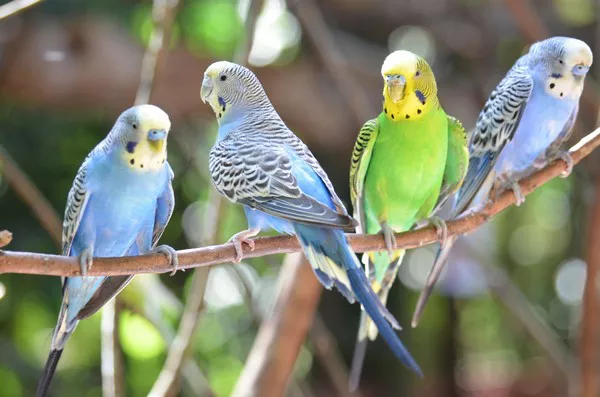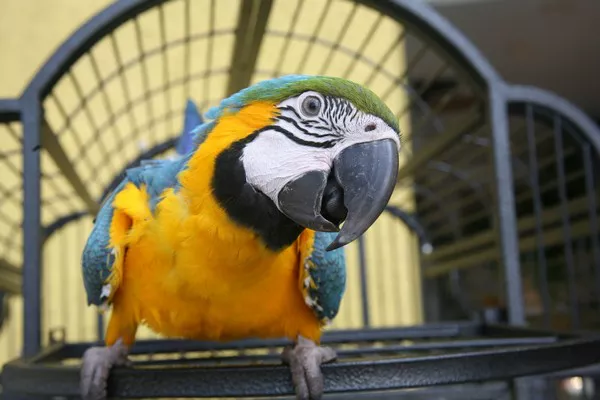Sun conures are vibrant, social, and charismatic parrots adored for their brilliant plumage and engaging personalities. However, like any pet, understanding their behavior and natural tendencies is crucial to fostering a positive relationship. One common question prospective or new owners often ask is: “Do sun conures bite?” The simple answer is yes, but it’s important to delve deeper into why they bite, what it means, and how to manage or prevent this behavior.
In this article, we’ll explore the reasons behind sun conure biting, factors influencing this behavior, and practical strategies to build trust with your feathered friend.
Understanding Sun Conures: A Brief Overview
Sun conures are medium-sized parrots native to South America, particularly the forests and savannas of Brazil, Venezuela, and Guyana. They are known for their striking yellow, orange, green, and blue feathers, making them one of the most colorful parrot species.
Beyond their appearance, sun conures are highly intelligent, social birds that thrive on interaction and companionship. They bond closely with their owners and often crave attention. However, their strong personalities and natural instincts can lead to biting behavior, especially if their needs or boundaries are misunderstood.
Do Sun Conures Bite?
Yes, sun conures can and do bite, but it’s essential to distinguish between different types of bites. Biting is a natural part of their behavior, often used as a form of communication. Understanding why they bite is key to addressing and preventing it.
Types of Sun Conure Bites
Exploratory Nibbles
Sun conures use their beaks to explore their environment, much like humans use their hands. A nibble or gentle bite may simply be their way of examining something new, such as your fingers, jewelry, or clothing. These bites are usually not painful and should not be mistaken for aggression.
Playful Bites
During playtime, a sun conure may lightly bite as part of its natural play behavior. This is usually accompanied by other playful actions, such as chirping, hopping, or hanging upside down. While not meant to harm, playful bites can sometimes become too rough if the bird gets overly excited.
Defensive or Aggressive Bites
When a sun conure feels threatened, scared, or annoyed, it may deliver a defensive or aggressive bite. These bites are often quick, sharp, and accompanied by body language such as fluffed feathers, dilated pupils, or loud squawking.
Hormonal Bites
Like many parrots, sun conures experience hormonal changes during breeding season, which can lead to increased territoriality and irritability. During this time, they may bite more frequently to assert dominance or protect their perceived territory.
Why Do Sun Conures Bite?
To effectively address biting, it’s vital to understand the underlying causes. Here are some common reasons why sun conures may resort to biting:
1. Fear or Stress
Sun conures may bite when they feel scared or stressed. Triggers for fear can include sudden movements, loud noises, or unfamiliar people or environments. A bite in these situations is a defensive reaction.
2. Lack of Trust
Building trust with a sun conure takes time. If the bird hasn’t developed a strong bond with its owner or feels uncertain about its surroundings, it may bite to establish boundaries.
3. Territorial Behavior
Parrots are territorial by nature, especially during breeding season. Sun conures may bite to protect their cage, toys, or a specific area they consider their “safe space.”
4. Overstimulation
Birds can become overstimulated during play or interaction, leading to accidental biting. This is common with younger sun conures that haven’t yet learned to regulate their energy.
5. Pain or Discomfort
Like any animal, sun conures may bite if they are in pain or feeling unwell. Health issues, such as feather plucking, injuries, or illness, can make a bird irritable and prone to biting.
6. Attention-Seeking Behavior
Intelligent and social, sun conures often crave attention. If they feel neglected or bored, they may bite as a way to get a reaction from their owner.
How to Prevent Sun Conure Biting
Preventing biting starts with understanding your bird’s body language, establishing trust, and ensuring their physical and emotional needs are met. Here are practical steps to minimize biting:
1. Learn to Read Body Language
Sun conures are expressive birds, and their body language can indicate their mood. Signs that a bird might bite include:
- Fluffed feathers
- Dilated pupils
- Tail fanning
- Hissing or growling sounds Recognizing these signals allows you to give your bird space before it resorts to biting.
2. Build Trust Gradually
Trust-building is the foundation of any relationship with a parrot. Spend time near your bird without forcing interaction. Offer treats and speak in a calm, soothing tone to establish positive associations.
3. Avoid Sudden Movements
Abrupt movements can startle a sun conure, triggering a defensive bite. Always approach your bird slowly and predictably.
4. Respect Personal Space
Even the most social birds need downtime. Avoid handling your sun conure when it seems irritable, sleepy, or overly protective of its cage.
5. Provide Enrichment
Sun conures are intelligent and need mental stimulation to stay happy. Offer a variety of toys, puzzles, and opportunities for foraging to prevent boredom-related biting.
6. Train Positive Behaviors
Use positive reinforcement training to encourage desired behaviors. Reward your sun conure with treats or praise for gentle interaction and calm behavior. Training sessions should be short, fun, and consistent.
7. Handle Hormonal Phases Carefully
During breeding season, give your sun conure extra space and avoid triggering territoriality. Redirect their attention with toys or activities.
How to Handle a Bite
Even with the best intentions, bites can happen. Knowing how to respond appropriately can prevent reinforcing the behavior.
1. Stay Calm
Reacting with anger or fear can escalate the situation. Avoid yelling, hitting, or shaking your bird, as this can damage trust and make the behavior worse.
2. Do Not Pull Away
Instinctively pulling your hand away during a bite can cause more damage and encourage the bird to bite harder. Instead, remain still and wait for the bird to release its grip.
3. Redirect Attention
After a bite, calmly redirect your sun conure’s attention to a toy or perch. This helps shift their focus and prevent further biting.
4. Assess the Situation
Reflect on what might have triggered the bite. Understanding the cause can help you avoid similar situations in the future.
Building a Positive Relationship with Your Sun Conure
A strong bond with your sun conure reduces the likelihood of biting and enhances your overall experience as a pet owner. Here are some tips to deepen your relationship:
1. Establish a Routine
Birds thrive on routine. Consistent feeding, playtime, and training schedules create a sense of security and trust.
2. Offer Affection on Their Terms
While sun conures are affectionate, they may not always be in the mood for handling or petting. Respect their cues and avoid forcing interaction.
3. Spend Quality Time Together
Sun conures are social creatures that enjoy companionship. Spend time interacting with your bird through training, games, or simply being present in the same room.
4. Provide a Comfortable Environment
A spacious cage, nutritious diet, and clean living conditions contribute to your bird’s overall happiness and well-being.
Common Myths About Sun Conure Biting
1. “A biting bird is a mean bird.”
Biting does not indicate that a sun conure is mean or aggressive by nature. It is simply a form of communication, often resulting from fear, overstimulation, or misunderstandings.
2. “Once a bird bites, it will always bite.”
Biting can be reduced or eliminated with patience, training, and trust-building. Birds are highly trainable and responsive to positive reinforcement.
3. “Only untrained birds bite.”
Even well-trained sun conures may occasionally bite due to hormonal changes, discomfort, or environmental stressors.
Conclusion
Sun conures are intelligent, affectionate, and lively companions, but like all parrots, they have their quirks—including the potential to bite. Understanding the reasons behind biting and addressing them with patience and consistency is key to fostering a loving relationship with your bird. By learning to read your sun conure’s body language, building trust, and providing a stimulating environment, you can minimize biting and enjoy a rewarding bond with your feathered friend.
With time, care, and dedication, most sun conure owners find that the occasional nip is outweighed by the joy and companionship these colorful birds bring to their lives.
Related Topics:























